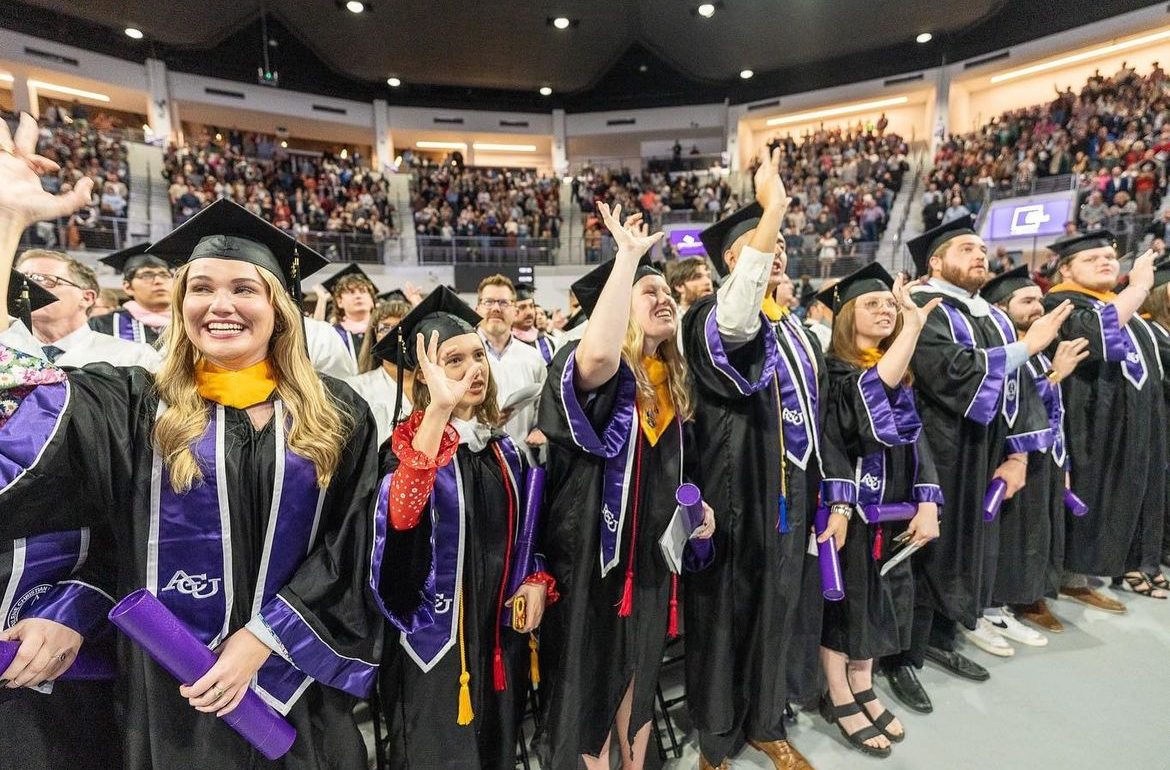Employer Next Steps & Resources
For Hosting ACU Interns

Next Steps for Recruiting ACU Students
Thank you so much for your interest in our amazing students! I would love to learn more about you and what you’re looking for. As the Director of Internships & Vocational Formation, I work closely with ACU’s Career Development office so the following represents both of our offices offering and how you can get connected.
What Our Offices Do: The Career Development office has a weekly email that highlights employment and internship opportunities to students. They also manage general campus visits (including hosting an information table in our campus center) or career fairs. Career Development also has a website that pulls directly from our 12Twenty employers to share about job opportunities. Any information I get on internships, I point to the 12Twenty site as well. I also work closely with our internship and fieldwork academic leaders on campus, so if you have any specific department requests, I can help navigate or connect many of those, whether for recruiting or speaking opportunities.
To help ACU and our students learn about you, the best next steps are:
1. Spread the word about your organization by posting opportunities on our job posting system, 12Twenty. Feel free to email me for the ACU-specific link as well as directions on how to do this.
Once you have created your. employer account, the Career Development office will review your account for approval, and upon acceptance, you can post positions online. With these postings, students will have the opportunity to apply, and you will be able to search for and contact qualified candidates.
2. If wanting to share about internship opportunities, email both myself (anne.hocking@acu.edu) and careers@acu.edu to let us know your unique request. If wanting to share about post-graduate opportunities, feel free to just email careers@acu.edu.
Tips for Supervising Interns
Thank you for taking the time to supervise a student during his/her internship! One of the pillars of a college education is students having the opportunity to connect what they’ve learned in the classroom to real-word experiences and internships are such strong opportunities for students to put this into practice, so we are grateful!
If interested, I have compiled some tips and tricks below and I welcome any feedback and/or questions at anne.hocking@acu.edu.

Have a Plan
Students need direction and want to feel useful. Please have a relevant, up-to-date job description for your students, take the time to set initial goals (hopefully related both to the work you need complete and to a couple of interests they personally have – I often suggest a 75% thought-out plan with 25% room for job crafting). Plan several check-ins for both regular task completion and for progress regarding the overall goals. Ensure you communicate deadlines for the student(s).
Practical Tip: Set the date(s) for your progress meeting(s) at the beginning of the internship and get them on both of your calendars. This will make it more likely for the check-ins to occur because you’ve set aside space for them.

Provide Oversight and Availability
Especially at the beginning of the experience, make yourself (or another relevant and knowledgeable colleague) available for questions. Organize weekly meetings (at minimum) to review the students’ work, provide direction and feedback, and answer any questions they may have. Do not be afraid to redirect students if they seem off track. Do not hold back from kindly correcting them if they’ve misunderstood or completed something wrong; this is a learning experience so they need to hear open and honest feedback.

Make the Experience Unique & Personal
Yes, one of the main goals is that interns contribute to your organization and needs, but another main goal is that interns discover their own interests and skills so they can hone in on their career direction. Therefore, they need opportunities to explore and try new things. To help with this, as much as you’re able:
-
Take the students with you to meetings, conferences, networking events, etc. so they can observe and rub elbows with people from various aspects of the work. Giving them exposure to different roles and experiences related to your industry may spark excitement and interest the students weren’t aware they had; it may also spark an idea that they want to contribute to your organization.
-
When crafting their roles, have some major tasks associated with your needs, but leave room for a creative assignment. Give your students a couple of weeks to observe, do a SWOT analysis, and pitch a project idea that they’d be interested in helping fill.

Have Expectations & Be Flexible
I’d encourage you as a supervisor to be both flexible and stern in your work with interns. On one hand, many students need boundaries and need to learn that expectations come with the job and that deadlines cannot be adjusted – a percentage off for being late doesn’t work in the workplace like it does in the classroom. However, students are still learning, often have many obligations they’re juggling and do have emergencies occur, so flexibility is necessary and a good example to set for students within the right measure.

Pay Your Interns!
Hopefully, this is a no-brainer for you, but the world of unpaid internships is coming to an end, rightfully so. There’s plenty of literature on this so I will not reinvent the wheel here, but instead will encourage you to provide a fair rate for your interns as they do bring extreme value to organizations and deserve to be paid. I do understand that this has more boundaries in some fields than others. If you’re a nonprofit organization and struggle with being able to afford to pay an intern, reach out to me at anne.hocking@acu.edu to learn more about our Federal Work Study partnership. Also, see this NACE article for more on the why behind internships needing to be paid and this link for the federal regulations on unpaid internships.

Create Learning Opportunites
Have you been in your role for a while? Do you have a lot of varied industry experiences you could share? Do you have a unique niche or passion that may be valuable for your students to learn more about? Be intentional to create learning opportunities for your students based on expertise you have (or someone else in your office who may relish the opportunity to lead and teach). Select a book they can read and discuss regularly with you. Have them do an additional certification as part of their role.
Additionally, include midway (or periodic) and end of internship evaluations as a part of your supervision. Hopefully, if the student is doing this for credit, their professor will provide them with forms for this, but if not, utilize your own and be edifying in your feedback. I provide some samples for these on this page. Additionally, ACU has partnered with the National Association for Colleges & Employers (NACE) to offer all students the opportunity to utilize their Career Readiness assessment. If you’d like to intentionally provide your student(s) quality feedback, reach out to me about completing this assessment for your intern(s).
Again, these are learning experiences, and supervisors’ honest feedback is key to improvement.

Vocational Formation
For those of you who believe your work is a place where you can live out your faith and, if your student is open to being mentored in this, I encourage you to go to my Vocational Formation Tips for Supervisors page to learn more.

Ending the Experience Well
Of course, if this means extending an offer to the student for further employment, go for it! But if not, there are still things you can do to help your interns end well.
1. Be intentional with any post-experience evaluations you are asked to fill out. You don’t want to be overly critical or overly polite with these. Students need to know how they can improve, so help give them some practical tips on how they can strengthen their professional skills.
2. Conduct an exit interview with your intern, both so you can provide them personal feedback (maybe even reviewing any performance evaluations you’ve completed) and so they can let you know about their experience (providing you the ability to learn and grow for future interns as well).
3. Proactively provide them with a letter of recommendation (addressed to “Whom It May Concern”) that they can take with them from their experience with you.
4. Let the student know anyway that you can be a resource to them in the future. Are you willing to be a future reference? Do you have any connections they can utilize post-graduation? Would you want to go ahead and connect them with anyone in your network now?
Looking for Micro-Interns? Check out Parker Dewey
Micro-Internships allow your company or organization to get on-demand, professional project support from talented students and recent graduates without having to take on administrative burdens like processing payroll or managing tax forms.
Micro-Internships are also an easy, cost-effective, and proven method for accomplishing recruiting goals, as they allow organizations to engage early career talent in a way that is accessible and appealing to students.
Check it out here.

ACU Center for Experiential Learning
ACU Box 28261
Abilene, TX 79699

